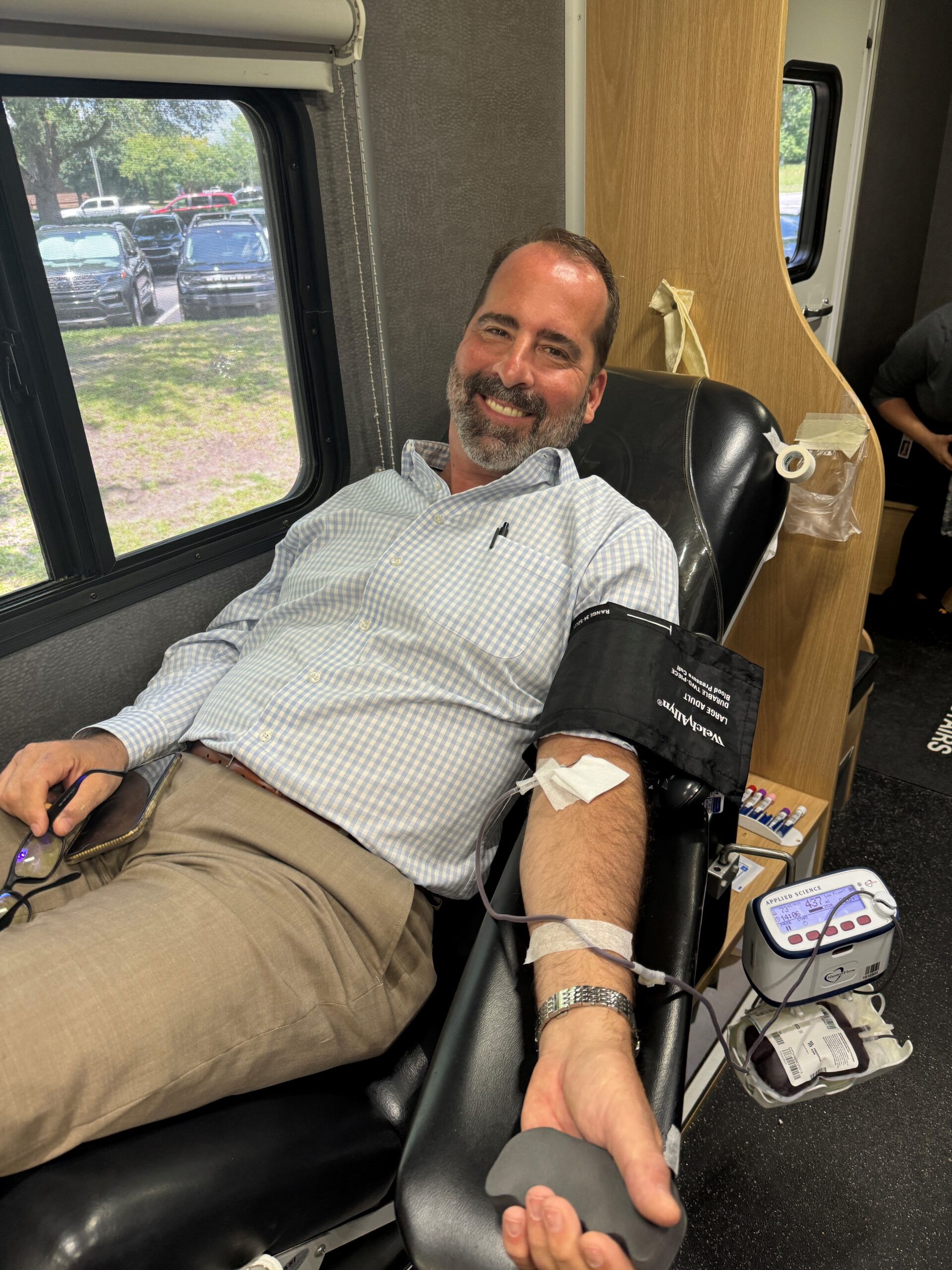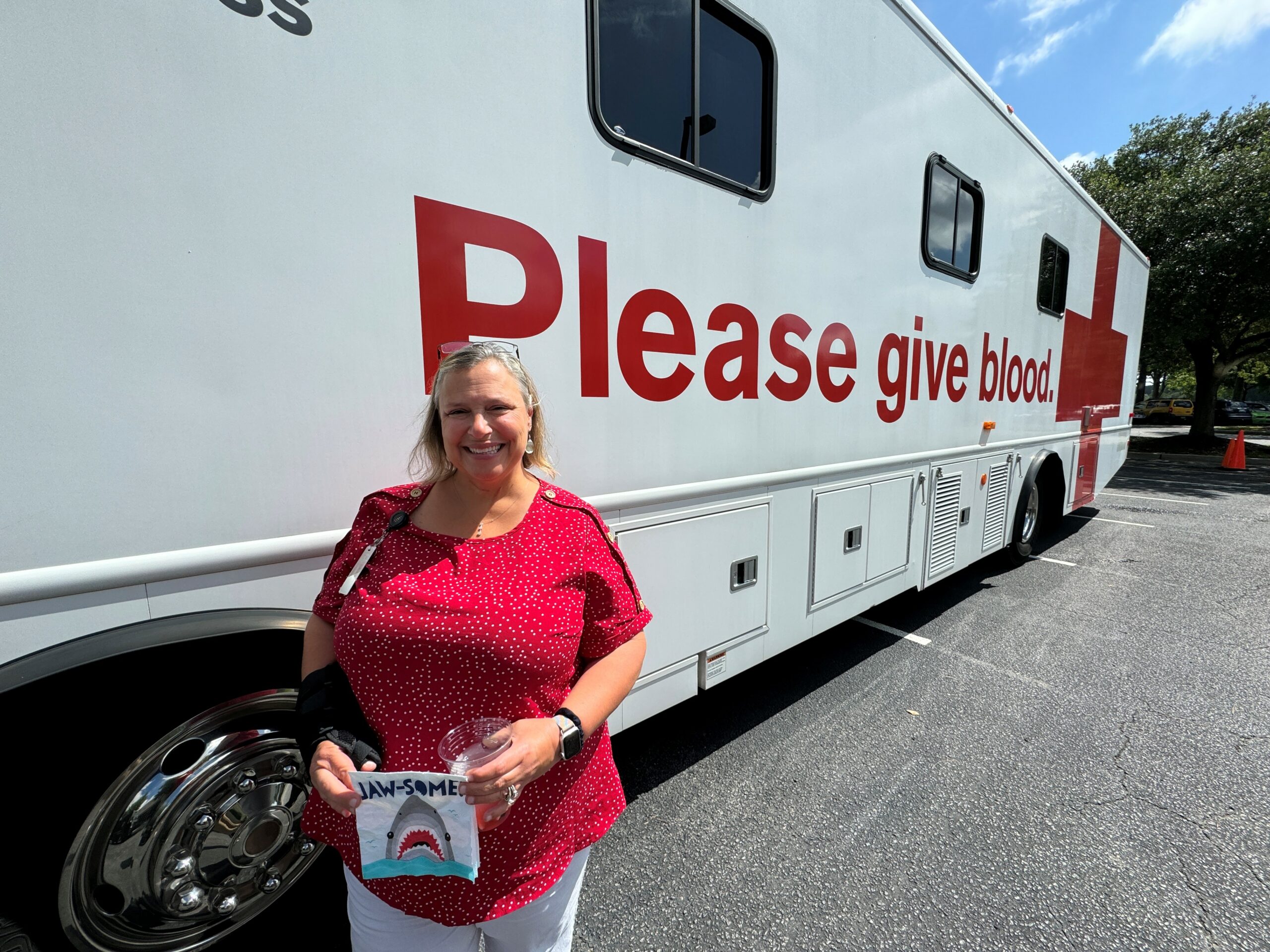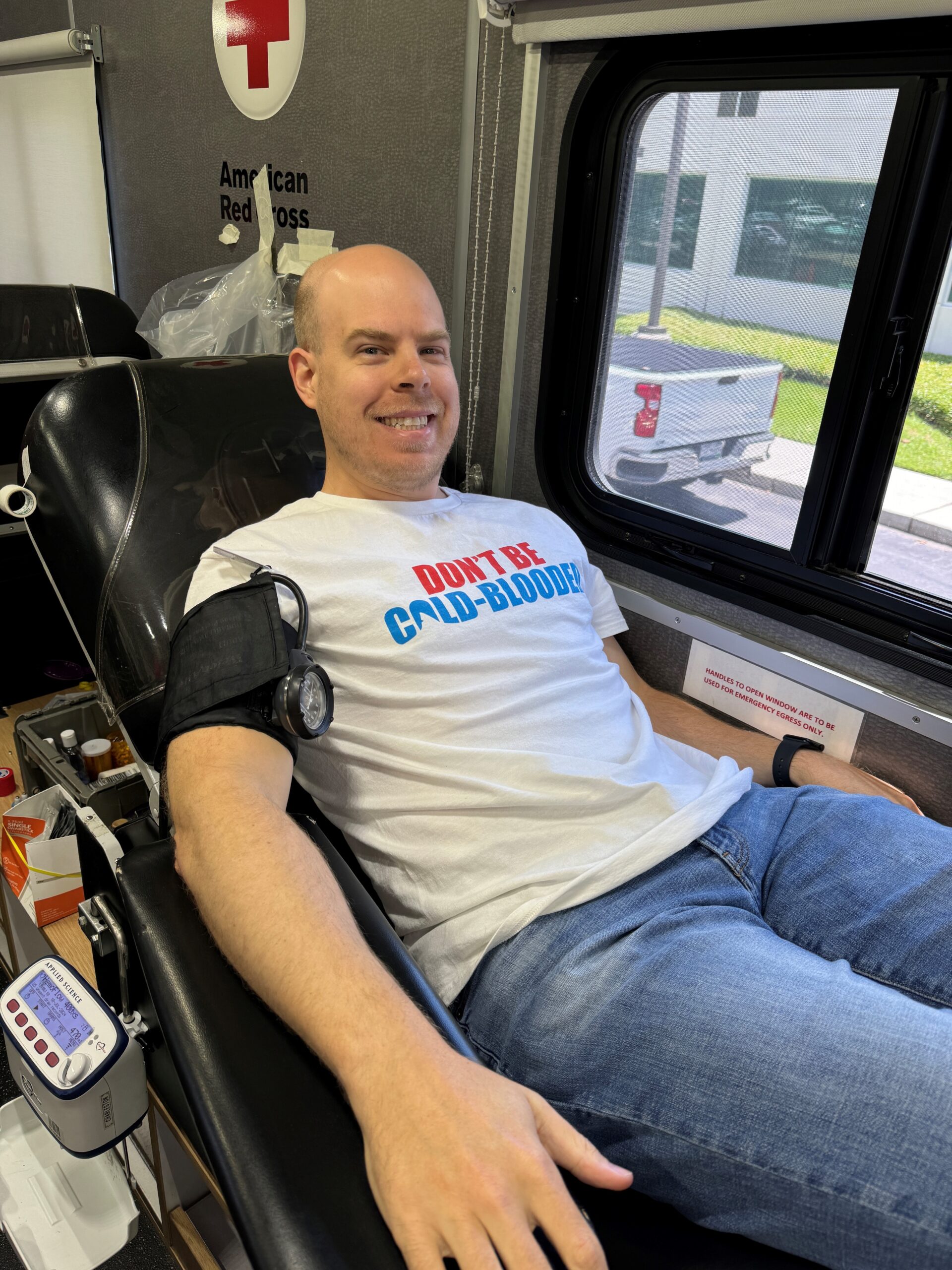Banking on Life: Blood Drive Exceeds Expectations
Donating blood stands as one of the most impactful ways to give back, offering the potential to save the lives of premature infants, trauma victims, and those battling chronic diseases and cancer. With no substitute for human blood, hospitals depend on donors to provide this universal lifeline essential for community health.
Since July 2020, REV has hosted 23 blood drives, collecting 454 units of blood to date. On July 10, the American Red Cross’ bloodmobile was posted outside the company’s headquarters and received the largest employee response in recent REV history, collecting 27 units of blood. Originally scheduled to be on-site until 2pm, the bloodmobile extended its stay to accommodate all those who wished to donate.
Yazad Dastur, a business analyst at REV, has experienced firsthand the life-saving impact of blood donation through his sister, who received a heart transplant. “Receiving blood in your time of need is heavily dependent on factors and circumstances that are outside of the receiver’s control,” Dastur said. “In your time of need, you would hope that there is a miracle out there for you or your family member. Giving blood allows you to be that miracle for somebody else.” Dastur and his family are active donors, in addition to being registered organ donors.
According to the American Red Cross, the U.S. needs about 29,000 units of red blood cells every day to meet the needs of accident and burn victims, heart surgery and organ transplant patients, and those receiving treatment for leukemia, cancer or sickle cell disease. In Charleston alone, MUSC Health relies on 500 units of blood each week to carry out critical medical procedures and treatments.
The blood units collected at the event, which include donations from repeat donors, are sent to a laboratory in Georgia for testing to determine blood type and to screen for hepatitis, HIV, and other communicable diseases. Once cleared, the blood is separated into red blood cells, plasma, and platelets, and then labeled and stored for safe transfusion.
The Red Cross contributes about 40% of the nation’s blood supply and transports blood products to over 2,500 hospitals and transfusion centers across the country.
Why your blood donation matters:
- 1 blood donation can save up to 3 lives
- Red blood cells can be stored for up to 42 days, while platelets last for up to 5 days
- More than 1 million people are diagnosed with cancer each year, and many of them will need blood—sometimes daily—during treatment
- While 38% of the U.S. population is eligible to give blood, only 3% actually donates
Sources
i. America’s Blood Centers (2024). U.S. Blood Donation Statistics and Public Messaging Guide.
ii. American Red Cross. (2023). Importance of the Blood Supply.
iii. Cantu, L. (2022, January 14). MUSC Health encourages blood donations in the face of national shortage.
iv. FAQs About Blood and Blood Donation. (n.d.). aabb.org. Retrieved July 15, 2024.







